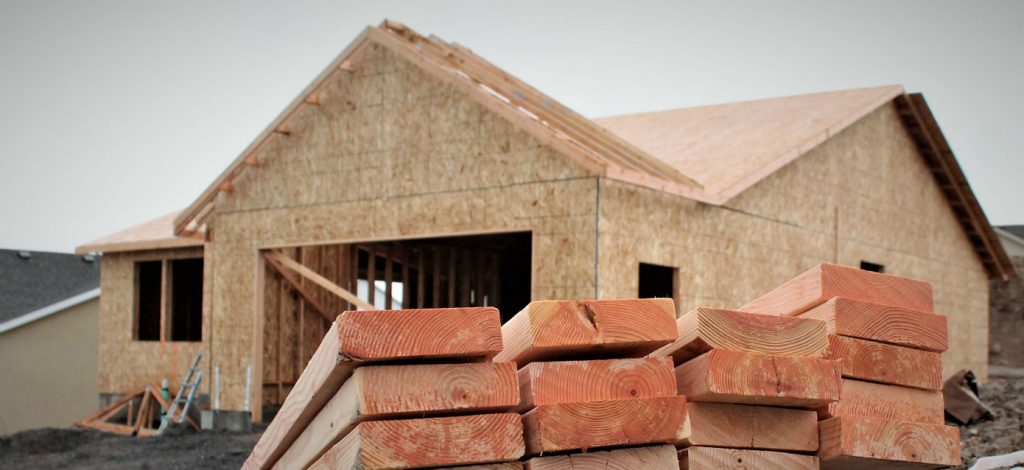
Construction is booming in Cache Valley and Smithfield is one of the fastest growing areas in the valley.
LOGAN – Utah’s unemployment numbers are among the best in the country and were recently recorded as the lowest the state has ever seen, at 2.3%. The national unemployment rate in December was 3.5%. Both signal a strong economy. But is it sustainable? Dr. Orn B. Bodvarsson, the dean of Westminster College’s Bill and Vieve Gore School of Business, presented an economic forecast for Utah at the Riverwoods Conference Center in Logan on Thursday. Dr. Bodvarsson, who specializes in labor markets and immigration, posed the question: is this party finally going to be over?
“The party is the economic expansion,” he explained, “and my basic message was that the party’s winding down a little bit but there’s no reason to believe that it won’t continue for a good little bit.”
He said the national economy continues to grow at approximately 2% a year, and should remain at a healthy expansion as long as interest rates remain low and there aren’t any unexpected geopolitical developments or domestic politics.
For Utah’s economy, specifically, he said it is not only very connected to the national economy, but also to the economy of its neighbors.
“We’re still very inter-related with the national economy and we’re inter-related with the economies of other states,” Dr. Bodvarsson explained after his presentation. “If the U.S. goes into a recession, so will Utah. If the national economy experiences some stimulus, we will too. The question is if we go into recession, will it be as bad as for the nation? And if we rally, will the rally be greater than what it is for the nation? So, we are still very, very aligned with the nation.”
When looking specifically at Utah’s economy, he said the state has a number of positive reasons for its growth.
“One is that we have a particular mix of industries that are very, very strong right now,” he explained. “We are kind of overweighted in particular industries that are performing quite well: health care, technology, high skill manufacturing, tourism, recreation, (financial services) are all very prosperous industries. Because we are overweighted in those industries we’re doing particularly well.
“Second, we have a relatively young labor force and that labor force is getting younger by the day because we have, every day, new people moving to the state who are young, high-skilled workers. So that’s very much in our favor. Overall, the demographics are very favorable. Our population is growing, partly due to family sizes in this state but also because of in-migration. Utah is a destination of choice.”
Political and cultural stability, Dr. Bodvarsson added, are also strong factors that contribute to the state’s economic success and the desire for others to relocate in Utah.
When it comes to Northern Utah, he described the economies of Cache and Box Elder counties as healthy.
“They are healthy because the state economy is in good shape. Most counties in the state have experienced population growth. The reason for the population growth is because of in-migration. As long as that continues, those counties should do very well.”
Dr. Bodvarsson noted that there are several rural counties in the state of Utah who have not benefited from economic expansion, and that is a concern not only for the state legislature but also for Congress.
If Utah has any warning signs to be aware of, Dr. Bodvarsson said, it may be how much the state relies on some of its industries.
“I mentioned earlier that we’re overweighted in certain industries that are doing very well,” he added, “but if the fortunes of any of those industries change for some reason, whether it’s due to a recession, whether it’s due to a policy change or something happening on the international front, it could hit us harder than it would hit the national economy.
“If there were to be a change in a state policy of some kind or a change in the business climate that could cause out-migration instead of in-migration, that could hurt us. But I would say, also, that anything that is adverse to the national economy will be adverse to the state economy. I would be more concerned about just what the general economic picture is and what it portends for the state.”
Increases in housing prices throughout the state are not as bad as California, but they are becoming more and more of an issue. Housing prices have become so expensive in California that not only are people leaving the state, but others are choosing not to go there.
“It is possible that housing prices could get to a level where they are counterproductive to the economy. We’re not there yet, but we’re not that far from it.”
Dr. Bodvarsson is scheduled to make similar presentations throughout the state due to a partnership with Bank of Utah. He is scheduled to be in Ogden on February 19th at The Monarch, in Salt Lake City on February 26th at Grand America Hotel, and in Provo on February 27th at the Utah Valley Convention Center. The presentations are free and open to the public.
AUDIO: Interview with Dr. Orn Bodvarsson

